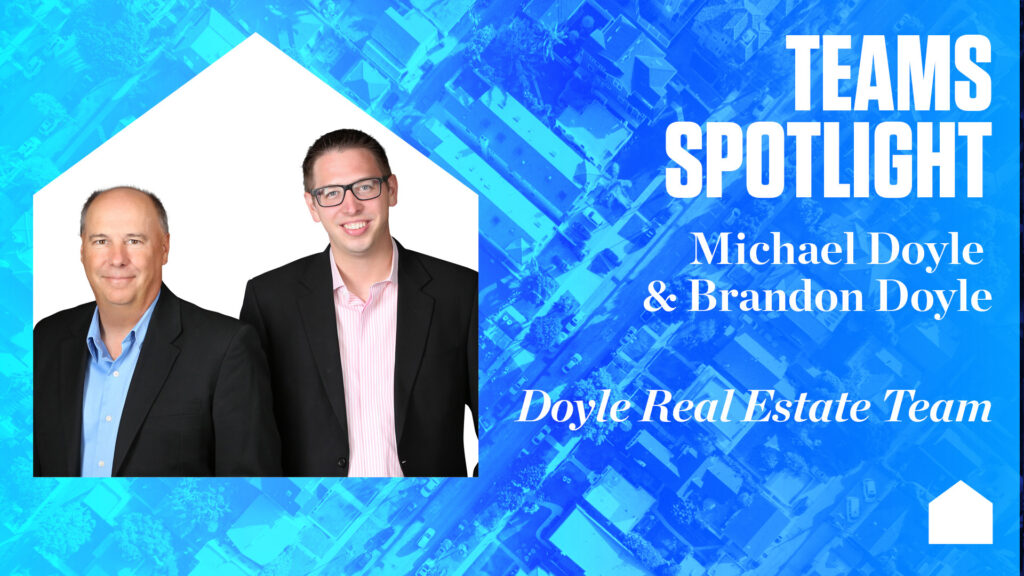Coaching encompasses a constant evolution of learning and implementation to help agents build their businesses. As many teams shift from professional development into coaching, these strategies can help, says President and CEO of Better Homes and Gardens Real Estate Kansas City Homes Christian Barnes.
In a shifting real estate market, the guidance and expertise that Inman imparts are never more valuable. Whether at our events, or with our daily news coverage and how-to journalism, we’re here to help you build your business, adopt the right tools — and make money. Join us in person in Las Vegas at Connect, and utilize your Select subscription for all the information you need to make the right decisions. When the waters get choppy, trust Inman to help you navigate.
Are you receiving Inman’s Broker Edge? Make sure you’re subscribed here.
Over the last few years, I have seen a shift in how brokerages think about professional development for agents. While we previously relied on training to impart information and share business-building approaches, we are now seeing more focus on coaching to support the execution of this information.
Traditionally, we have been very good at training both new and experienced agents. Learning platforms have been a critical component of brokerage value propositions that help us recruit and retain. Through these learning platforms, we can show agents how to write a business plan, use technology and set up social media accounts.
But we haven’t focused on helping agents implement.
For instance, agents can know how to use dotloop, but the knowledge is counterproductive if they don’t know how to write a contract. Over the past few years, here are some essentials I’ve learned about the coaching process.
Tip 1: Bridge the gap
About five years ago, I noticed a gap between information and execution. I realized that there was a need to consistently help agents take what they had learned and apply it through coaching.
However, it’s not a “set it and forget it” mentality. Coaching encompasses a constant evolution of learning and using with the intension of helping agents build their business.
But it’s important to recognize that training and coaching go hand in hand. The goal is to bridge the gap between having the nuts and bolts and making them into a business-building machine.
Another way of looking at it is that coaching is a way to provide guided execution or present avenues to explore. Coaching is where the rubber meets the road in applying and evolving skills to help build a business.
Tip 2: Ask and answer
Effective coaching boils down to asking questions and helping agents answer them, often by being a sounding board.
Core questions to guide coaching conversations and lead agents down a path of self-discovery can include:
- What are you going to do this week to further your business?
- What have you done that’s working?
- What could you be doing differently?
- What resources do you need to reach your goals?
- What gaps exist in your skill sets?
- How will you apply the tools in your toolkit to further your business?
Critical to this process is setting up accountability with regular check-ins and status meetings. Regular check-ins can help to break big goals down into smaller achievable steps.
Tip 3: Make it personal
A valuable part of this question-based approach is that it can give agents the space to decide what works for them. I have found it very helpful to meet agents where they are and take my lead from them.
In this regard, coaching becomes very personalized. There is no one-size-fits-all approach.
The personalized nature of coaching also means that you will learn a great deal about your agents — not just the deals they are working on, but how they work, insights into their personalities and details about their personal life. The one-on-one nature of coaching allows you as the broker to build deeper relationships with your team based on building trust.
That trust, in turn, can support loyalty, which is what we all strive for with our agents. I’ve also found that these one-on-one coaching relationships are a great way to get feedback from agents on what tools are working, where they have skill gaps and how we can fine-tune our offerings.
These insights are invaluable in devising strategy and investments in products and services to best align with our agents’ needs.
Tip 4: Focus on resources
Another thing I have learned is that not all coaches complement all agents, so it’s helpful to have a variety of coaching resources available at your brokerage.
In addition to in-house coaching, explore working with outside coaches for both individual sessions and group training classes.
You may also have in-house talent in the form of mentors who would be able to add to your coaching bench. In this manner, you are the primary source of the coaching resources. And while it’s helpful to have options, it’s also important not to become too fragmented in your coaching offerings and to ensure that the resources align with your company culture.
Tip 5: Hone your coaching skills
Networking with other coaches, listening to podcasts, and watching videos are all valuable resources to explore. But it’s essential to incorporate the things that resonate with you, so you can build your own style and playbook.
Authenticity is so important when creating a coaching relationship. And just as we are helping agents grow their skill sets, coaches also need to have the eternal student approach as well.
In my experience, today’s agents prioritize spending on coaching over any other business expense. Therefore, implementing a coaching program can be a valuable investment in enhancing a brokerage’s value proposition to attract and retain talent.
Brokerages have a tremendous opportunity to differentiate themselves by committing to coaching to help agents build their business, not just at the beginning of their real estate career but over their entire career arc. That’s great for their business and yours, too.
Christian Barnes is President and CEO of Better Homes and Gardens Real Estate Kansas City Homes and an active leader in local, state and national real estate associations. Follow her on Instagram and LinkedIn.



 Are You Interested in West Eleventh Residences Miami?
Are You Interested in West Eleventh Residences Miami? Are You Interested in ONE Park Tower by Turnberry?
Are You Interested in ONE Park Tower by Turnberry? Are You Interested in Diesel Wynwood Condominium?
Are You Interested in Diesel Wynwood Condominium? Are You Interested in Five Park Miami Beach?
Are You Interested in Five Park Miami Beach? Are You Interested in Cipriani Residences Miami?
Are You Interested in Cipriani Residences Miami? Are You Interested in Bentley Residences Miami?
Are You Interested in Bentley Residences Miami? Are You Interested in Baccarat Residences Brickell?
Are You Interested in Baccarat Residences Brickell? Are You Interested in Aria Reserve Miami?
Are You Interested in Aria Reserve Miami? Are You Interested in 888 Brickell Dolce & Gabbana | Miami?
Are You Interested in 888 Brickell Dolce & Gabbana | Miami? Are You Interested in 600 Miami WorldCenter?
Are You Interested in 600 Miami WorldCenter? Are You Interested in HUB MIAMI RESIDENCES?
Are You Interested in HUB MIAMI RESIDENCES? Are You Interested in WALDORF ASTORIA RESIDENCES?
Are You Interested in WALDORF ASTORIA RESIDENCES?